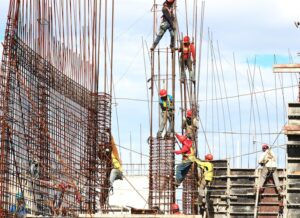 Dealing with a Construction Defect
Dealing with a Construction Defect
Dealing with a construction defect can be frustrating. A commercial construction project can take years to plan and set in motion. Yet, despite all the work that you put into your project trying to anticipate everything that can go wrong, there’s always the possibility that something unexpected will come up. In these instances, your timeline can be thrown out the window and your budget can explode, threatening the project in its entirety. After completion, you may find that your structure is no longer viable for its intended use. Eve Mazzarella explains more.
If you’re in this situation now, then you need to know how to move forward while protecting your interests.
Identifying a Construction Defect
As a developer, your first step in these cases is to determine if a construct defect exists. There are several ways to assess this, but if you have water leaks or water intrusion, then there’s a good chance that your project has been improperly built and fixing the issue could be extremely expensive.
Of course, construction defects can involve the materials used to build the structure, the design of the structure, the construction itself, or in the maintenance of the structure. So, as you’re analyzing what’s wrong with your project, make sure that you’re taking the time and putting in the effort necessary to gain a clear sense of what went wrong and where in your project’s timeline the problem occurred.
What To Do Once You Suspect a Defect
If you want to protect your investment, then you need to take swift legal action. What does that look like? It depends on which legal basis you’re bringing your claim. Here are some of your options:
- Breach of contract: The poor workmanship and resulting damages may have directly breached the terms of your contract with the builder. If that’s the case, then the focus of your claim is going to be on how the terms of the contract were violated and the damages that you suffered as a result.
- Breach of express warranty: In some instances, the construction company provides a written warranty that speaks to the quality of the project to be completed. If the final product fails to live up to that warranty, then you can file a claim for a breach of that express warranty. Just make sure that you can clearly define the parameters of that warranty.
- Breach of implied warranty: Even if there’s no express warranty in place, California law recognizes an implied warranty that projects are to be built in a reasonable workmanship manner.
- Strict liability for residential structures: If you’ve invested in residential structures, then your builder is strictly liable for any damage caused by a defect. If there is no damage, of course, then there is no strict liability.
Be Aware of the Timeframes
If you’re going to pursue a construction defect claim, and we encourage you to do so if you think that your project has been impacted in some fashion by one, then you need to be aware of the statutory timeframes during which you must file your claim. Your attorney can help you navigate the statute of limitations that apply to your case so that you’re timely in seeking the compensation that you’re owed.
Don’t Let Your Finances and Your Project Falter on Account of a Construction Defect
There’s no doubt that there’s a lot at stake in your case. You may be facing increased expenses, financial losses, and even other litigation if you don’t act.
The process can be quite involved, though, which is why we encourage you to work closely with an attorney who is well-versed in this area of the law. Hopefully by doing so you’ll be able to protect your interests and ensure that your project is brought to fruition as you envisioned it.


